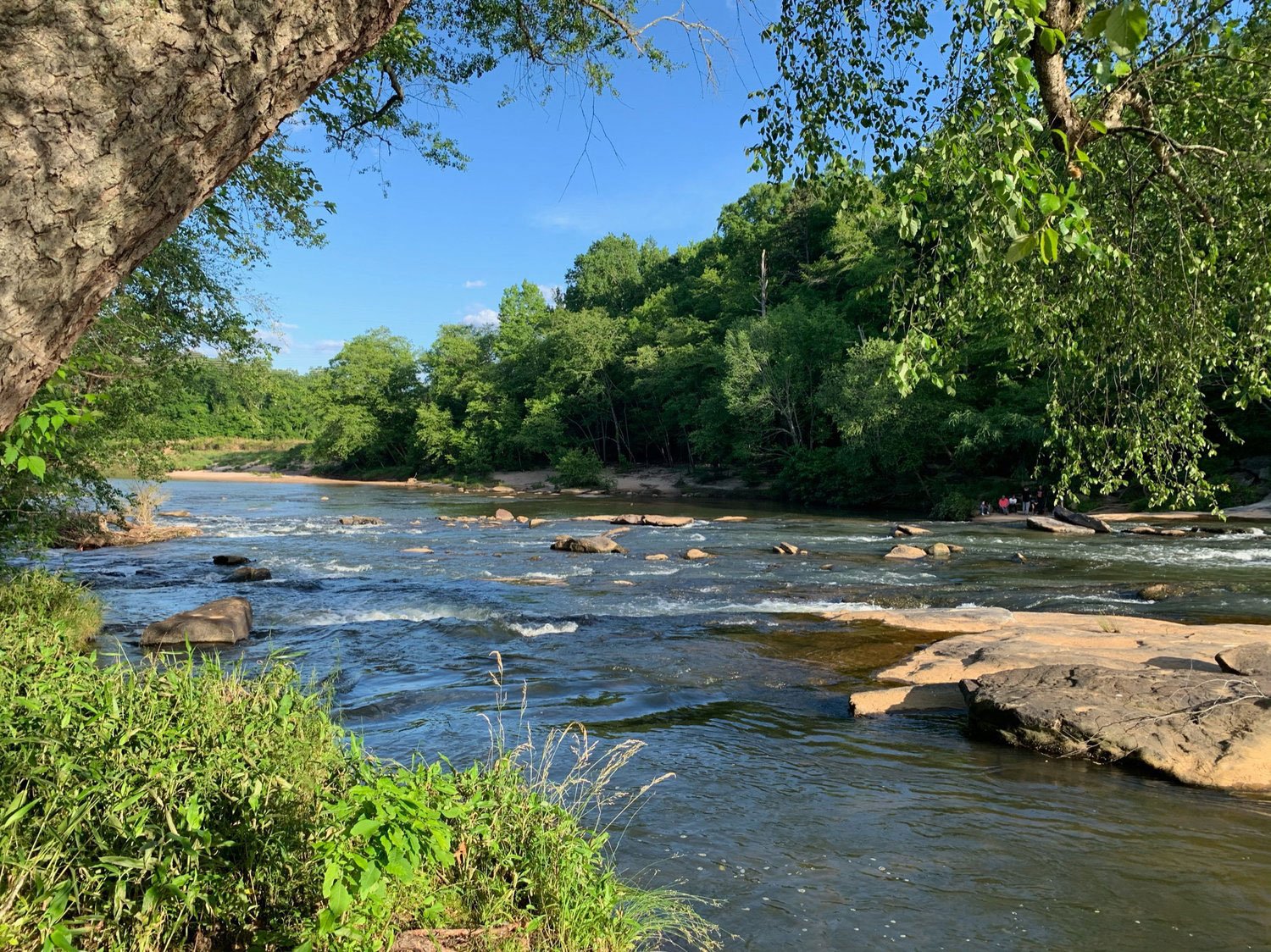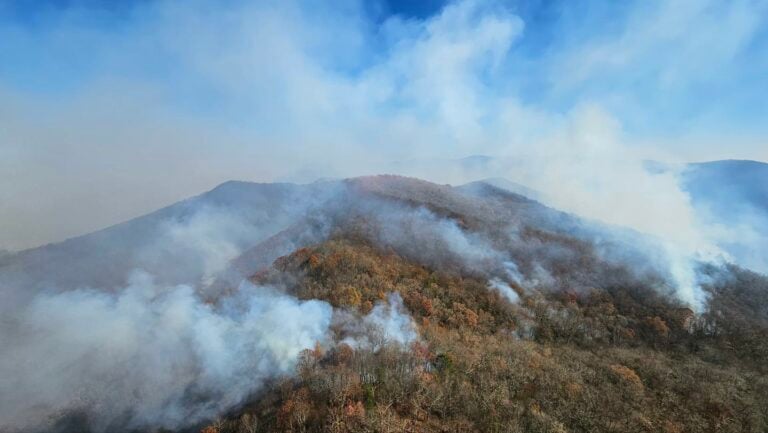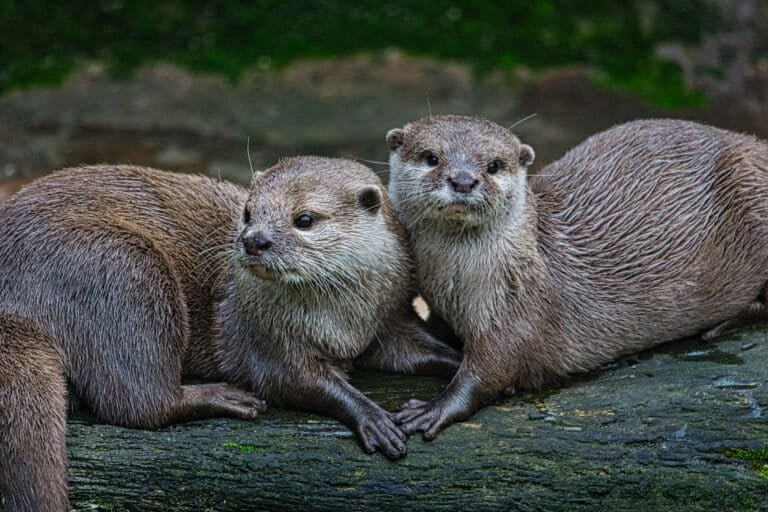The South River Water Trail is restoring Atlanta’s Forgotten River
Just North of Atlanta’s Hartsfield-Jackson Airport, the world’s busiest, a river begins. The South River flows quietly unnoticed through the heart of Atlanta—through neighborhoods, apartment complexes, and urban forests. It is surprisingly wild and scenic, passing through lush, rewilded landscapes that are mostly undeveloped.
The South River has been overshadowed by its larger neighbor, the Chattahoochee. The Chattahoochee River begins in north Georgia and becomes a major waterway by the time it reaches Atlanta. The Hooch has several dams, lakes, and even national park units: the Atlanta section of the river is a National Recreation Area attracting millions of visitors each year.
Just a few miles away, on the southside of Atlanta, the South River has been mostly forgotten.
Dr. Jacqueline Echols is hoping to change that. She and the South River Watershed Alliance have created the South River Water Trail to highlight the river’s tranquil, scenic, and largely overlooked recreation opportunities.
The South River is one of the only rivers in the country to start in a city. Most rivers have their headwaters high in the mountains, but the South River begins on Atlanta’s southside and flows southeast for 60 miles to Jackson Lake.
The South River is also the headwaters of Georgia’s largest and most biologically diverse watershed. Below Jackson Lake, the river becomes part of the Ocmulgee-Altahama River Basin, which provides drinking water to millions of people and shelters more than 120 rare and endangered species.
“The South River is an undiscovered gem,” says Echols. She and the South River Watershed Alliance hope the new water trail will finally put it on the map.
The South River Water Trail starts in south Atlanta and runs through several parks, including Panola Mountain State Park and the Arabia Mountain National Heritage Area, which offer dozens of miles of hiking and mountain biking. Paddlers can also stop at shoals, sandbars, and a white sand beach that frames Panola Shoals Trailhead, the recreational gateway to the South River.
Echols and her team have spent years developing the South River Water Trail and securing funding for access points. Counties have invested millions of dollars in new river parks along the South River that provide put-in and take-out points.
During spring and summer, Echols leads paddling trips down the river once a month, but anyone can go canoeing, kayaking, paddle boarding, or tubing down the river any time. The river is a mild, Class I paddle with few rapids and a gentle current.
“Paddling the South River is a peaceful and picturesque experience,” says Echols, “largely because it’s been forgotten for so long.”
Unfortunately, it’s a river that regulators have forgotten, too.
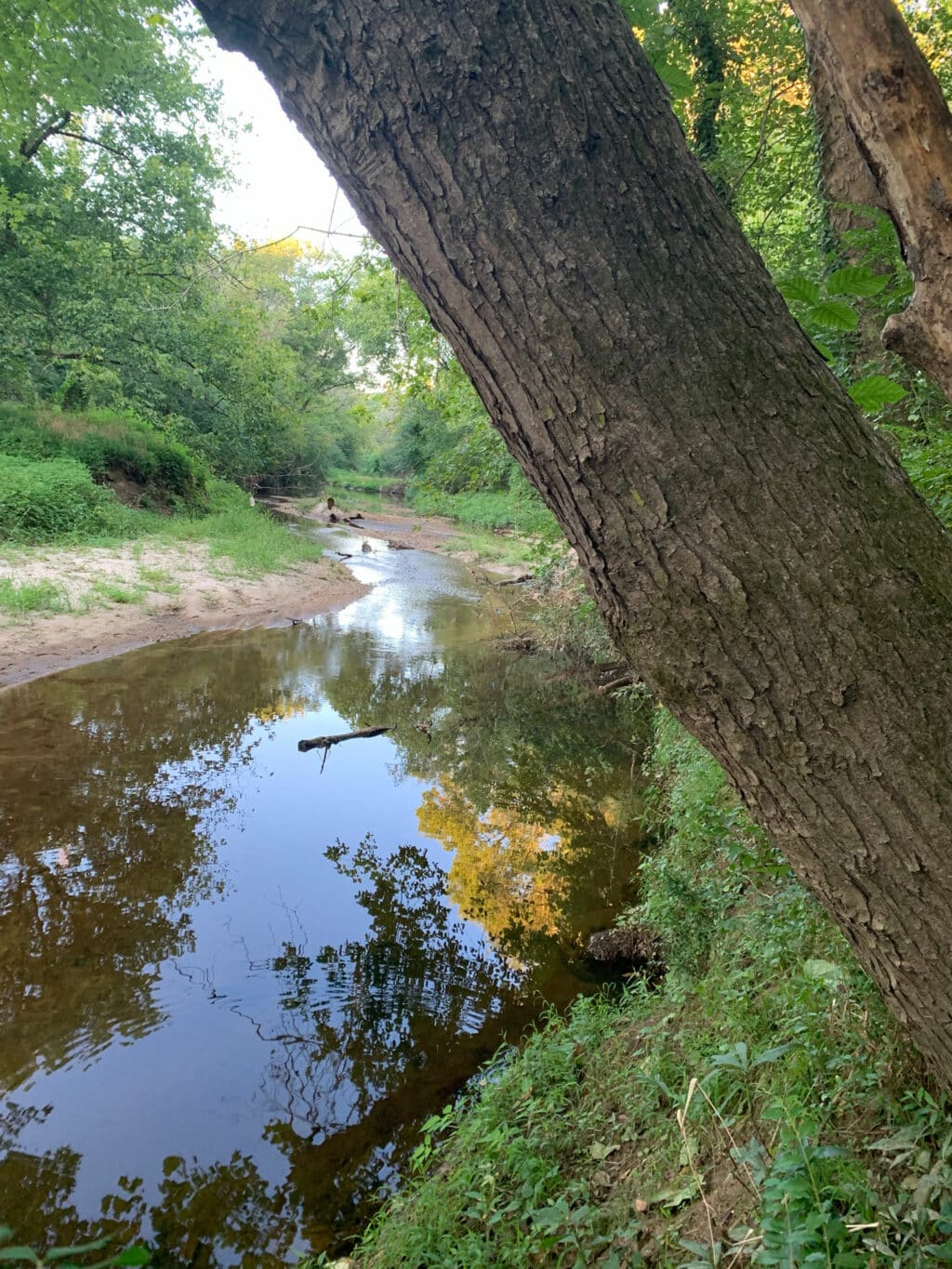
A Dream Deferred
For more than 60 years, the South River has been plagued by pollution from failing water treatment facilities and sewage systems in Atlanta’s Dekalb County. Hundreds of sewage spills have resulted in hundreds of millions of gallons of pollution in the South River.
In 2010, the EPA and Dekalb County signed a consent decree to clean up the South River, but it excluded two-thirds of the county’s sewer system—the portion with the largest number and concentration of Black residents and the highest poverty rates in the state. These communities were placed in a “non-priority area,” where there is no deadline to clean up or repair the sewage system. As a result, Clean Water Act violations continue—and the river and adjacent communities continue to suffer.
Non-priority areas are essentially discrimination zones where the Clean Water Act is not being applied or enforced.
South River Watershed Alliance has sued, and the lawsuit is now awaiting a decision from the Eleventh Circuit Court of Appeals. The court has been sitting on the case for more than 15 months.
A Forest Fight Turns Deadly
Meanwhile, more than 3,500 acres of forest in the South River headwaters have been proposed for permanent protection. The South River Forest would protect the last and largest forest in Atlanta. In 2017, the City of Atlanta called for the permanent protection of the 300+ acre Old Atlanta Prison Farm site in its City Charter.
But then the Atlanta City Council backtracked—and proposed instead to build the country’s largest police training facility in the South River Forest. The Atlanta Police Training Facility—dubbed Cop City by some opponents—would include shooting ranges, explosives testing sites, and a mock city to simulate real-world training.
The proposed site already has a racist history. The land was originally inhabited by the Muscogee (Creek) Nation before their forced displacement. It also operated as a plantation and, most recently, a prison farm using incarcerated labor.
Community opposition to Cop City has been fierce and widespread. More than 70% of Atlantans spoke out against it, and forest defenders have been encamped in the South River Forest for nearly two years.
Then, tragically, in January, one of the forest defenders—26-year-old Manuel Esteban Paez Terán, known as Tortuguita—was killed by law enforcement. An officer was also injured. Authorities have released few details: they claim that Terán fired at the officer, but a subsequent body camera recording suggests that officer may have been inadvertently shot by another officer.
The chilling irony of a protester killed by law enforcement to make way for a police training facility has ignited national and global opposition to Cop City—and even more support for protecting the South River Forest.
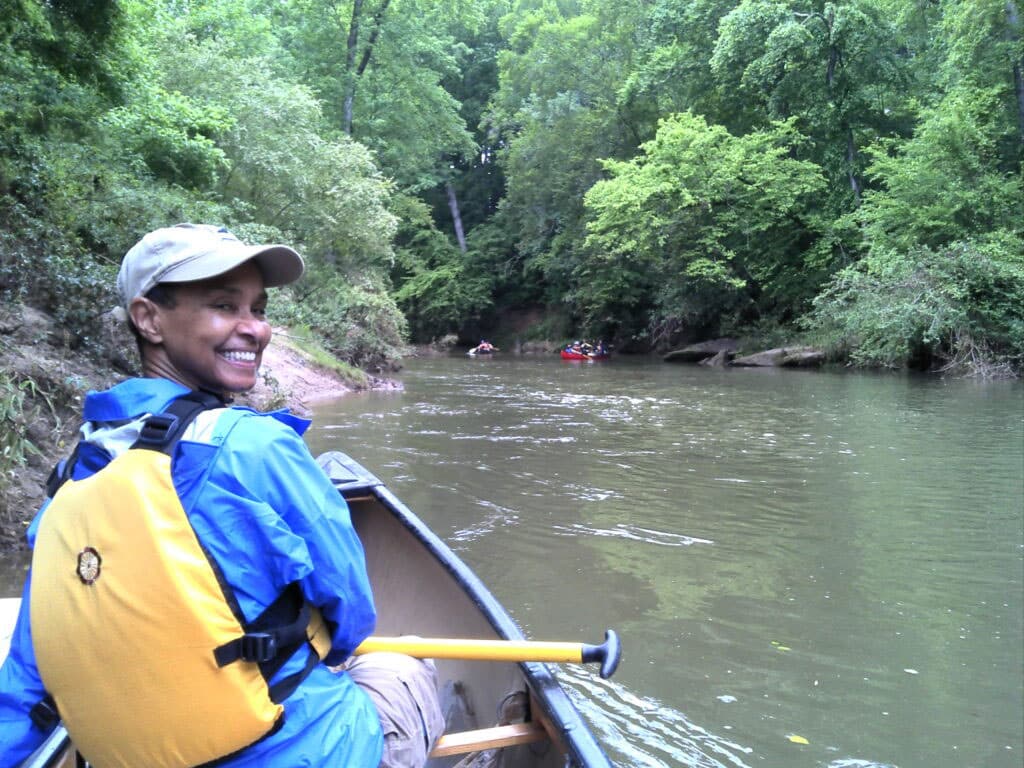
A River Runs Through It
The South River flows through the heart of the embattled South River Forest and Black communities enduring ongoing sewage pollution. Echols and the South River Watershed Alliance remain committed to protecting the river and the communities who depend on it. The key to saving the river is to get more people to experience it, says Echols.
The South River could become one of the region’s premier paddling destinations. It’s already a prime birdwatching and wildlife haven, and the new parks are making the river even more accessible. This is Atlanta’s home river, and with basic enforcement of the Clean Water Act, it could become an outdoor oasis and economic engine for the area.
The South River Water Trail can also unite neighbors around a common goal: protecting the ribbon of life running through their communities.
The river can be a place of healing, says Echols. “The South River belongs to all of us, and we can all enjoy and protect it together.”
Equal protection for all: Sign a petition and send a letter to EPA supporting full enforcement of the Clean Water Act for all South River communities at southriverga.org
Cover photo: The South River flows for 60 miles from the city of Atlanta to Jackson Lake. Photo courtesy of the South River Watershed Alliance.
